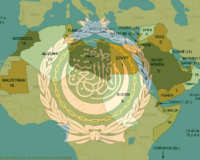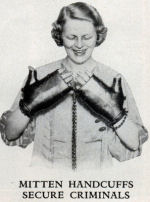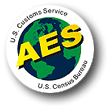 The Bureau of Industry and Security (“BIS”) released Settlement Agreements that the agency entered into with AR-AM Medical Services LLC and DMA Med-Chem Corporation, two related medical device distributors located in Great Neck, NY. According to the charging papers, the companies supplied commercial invoices to the New York branch of the Bank of Egypt containing the following language:
The Bureau of Industry and Security (“BIS”) released Settlement Agreements that the agency entered into with AR-AM Medical Services LLC and DMA Med-Chem Corporation, two related medical device distributors located in Great Neck, NY. According to the charging papers, the companies supplied commercial invoices to the New York branch of the Bank of Egypt containing the following language:
The goods are neither of Israeli materials nor [sic] they contain any Israeli materials nor are they exported from Israel.
We declare that no raw material of Israeli origin has been used for production or preparation of the goods mentioned in this invoice.
AR-AM was alleged to have included this language in three invoices and agreed to a fine of $7,200. DMA was alleged to have included this language in one invoice and agreed to a proportionate fine of $2,400. Both companies agreed to a “non-standard” two-year denial order forbidding them from engaging in exports to Bahrain, Iraq, Kuwait, Lebanon, Libya, Oman, Qatar, Saudi Arabia, Syria, the United Arab Emirates and the Republic of Yemen. Both fines were suspended for two-years contingent upon compliance with the non-standard denial order and no further export violations by the companies.
Since the language was contained in the invoices generated by both companies, this is not a case where the company simply missed the boycott language in terms and conditions or other documents supplied by the purchaser. As a result, neither company was in very good position to claim that it was an oversight or a failure to read all documents thoroughly. This probably explains the two-year denial order.
However, the “non-standard” denial order is hard to defend even in this circumstance. Section 764.3(a)(2) of the EAR permits a “non-standard” denial order which is described as “narrower in scope” than a “standard” denial order. The order at issue is non-standard because it is restricted to specific Arab countries. Since only four instances of anti-boycott compliance were alleged, and three of those for Syria and the fourth was for an unspecified country, these aren’t the countries that were involved in the transactions in dispute. Nor or these all the countries in the Arab League.
Instead, the list seems to be derived from the list of countries reported in the 2007 BIS report to have been involved in anti-boycott requests, excluding Egypt and Jordan which were involved in only a handful of such requests. That being said, it seems more than a little ironic that a boycott would be punished not be a general denial order but by an order that in effect was itself a boycott of specific countries.
 A recent story in the New York Times reveals that the Bureau of Industry and Security is drafting new rules relative to exports of crime control equipment to China. The revision has been prompted by the desire of U.S. companies to sell face-recognition software and hardware to China as anti-terrorism measures in advance of the Olympics in Beijing.
A recent story in the New York Times reveals that the Bureau of Industry and Security is drafting new rules relative to exports of crime control equipment to China. The revision has been prompted by the desire of U.S. companies to sell face-recognition software and hardware to China as anti-terrorism measures in advance of the Olympics in Beijing. 
 Posted by
Posted by  Category:
Category: 

 The Bureau of Industry and Security (“BIS”) released Settlement Agreements that the agency entered into with
The Bureau of Industry and Security (“BIS”) released Settlement Agreements that the agency entered into with  The Bureau of Industry and Security (“BIS”)
The Bureau of Industry and Security (“BIS”) 

